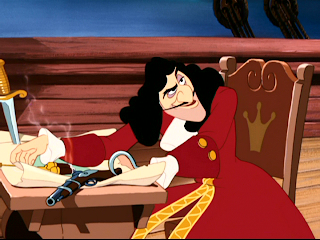Wish You Were Here (2013)
Starring Joel Edgerton, Teresa Palmer, Felicity Price, and Antony Starr
Directed by Kieran Darcy-Smith
***This film is currently streaming on Netflix***
Oh, what joy there is in discovering a little underseen gem of a film and being able to espouse its goodness to others. Wish You Were Here is one such flick -- a taut, exciting mystery that I heartily recommend.
Steph (Teresa Palmer) and Jeremy (Antony Starr) are all set to travel to Cambodia for a relaxing getaway (with a slight amount of business thrown in for Jeremy). Looking for a way to spend more time together, Steph invites her older sister Alice (Felicity Price) and her husband Dave (Joel Edgerton), hoping for some quality "sister" time before Alice gives birth to her third child. While soaking up the sun in Cambodia, the quartet attend a party one evening in which they become intoxicated (or worse) and Jeremy ends up going missing. Unable to locate him, Steph, Alice, and Dave return to Australia, carrying with them secrets that are gradually revealed as the film progresses.
While the story itself isn't necessarily new, co-writers Kieran Darcy-Smith (who also makes his feature debut directing here) and the aforementioned Felicity Price decide to let things unfold in a non-linear fashion. While the initial bouncing around in time proves to be a bit disorienting, the debut screenwriters (who are also husband and wife) make a smart decision in the way they decide to tell their story -- just as the characters find themselves in a dizzying spiral caused by the loss of their friend, we in the audience are left a bit discombobulated as well and it's an interesting touch.
What makes the film really pop, however, are the performances of Edgerton and Price. I'd never seen Ms. Price before in anything and I can only hope that she'll find herself branching out from Australian tv and into more films. Price's role of Alice is a bit tricky as she's forced to often "react to" rather than
instigate situations. However, her character's naivete is built out of love for both her husband and her sister and when she's forced to question the people for whom she cares deeply, her emotions are palpably wrenching at times.
Even in lukewarm films, Edgerton usually manages to make an impact. Here, he plays a conflicted man with secrets that are weighing him down, literally causing him pain from carrying them. Edgerton is given an interesting character to work with and he absolutely makes us feel for his nice guy thrown into a desperate situation.
In addition to getting great performances from his actors, director Darcy-Smith proves more than capable behind the lens, taking a tricky screenplay and making the pieces fit together effortlessly, slowly and constantly building tension until the film's final moments when the Australia present and the Cambodia past storylines combine. Kudos all around (including some beautiful cinematography) for a fine piece of filmmaking. Wish You Were Here is absolutely worthy of a stream from Netflix.
Steph (Teresa Palmer) and Jeremy (Antony Starr) are all set to travel to Cambodia for a relaxing getaway (with a slight amount of business thrown in for Jeremy). Looking for a way to spend more time together, Steph invites her older sister Alice (Felicity Price) and her husband Dave (Joel Edgerton), hoping for some quality "sister" time before Alice gives birth to her third child. While soaking up the sun in Cambodia, the quartet attend a party one evening in which they become intoxicated (or worse) and Jeremy ends up going missing. Unable to locate him, Steph, Alice, and Dave return to Australia, carrying with them secrets that are gradually revealed as the film progresses.
While the story itself isn't necessarily new, co-writers Kieran Darcy-Smith (who also makes his feature debut directing here) and the aforementioned Felicity Price decide to let things unfold in a non-linear fashion. While the initial bouncing around in time proves to be a bit disorienting, the debut screenwriters (who are also husband and wife) make a smart decision in the way they decide to tell their story -- just as the characters find themselves in a dizzying spiral caused by the loss of their friend, we in the audience are left a bit discombobulated as well and it's an interesting touch.
What makes the film really pop, however, are the performances of Edgerton and Price. I'd never seen Ms. Price before in anything and I can only hope that she'll find herself branching out from Australian tv and into more films. Price's role of Alice is a bit tricky as she's forced to often "react to" rather than
instigate situations. However, her character's naivete is built out of love for both her husband and her sister and when she's forced to question the people for whom she cares deeply, her emotions are palpably wrenching at times.
Even in lukewarm films, Edgerton usually manages to make an impact. Here, he plays a conflicted man with secrets that are weighing him down, literally causing him pain from carrying them. Edgerton is given an interesting character to work with and he absolutely makes us feel for his nice guy thrown into a desperate situation.
In addition to getting great performances from his actors, director Darcy-Smith proves more than capable behind the lens, taking a tricky screenplay and making the pieces fit together effortlessly, slowly and constantly building tension until the film's final moments when the Australia present and the Cambodia past storylines combine. Kudos all around (including some beautiful cinematography) for a fine piece of filmmaking. Wish You Were Here is absolutely worthy of a stream from Netflix.
The RyMickey Rating: B+






























